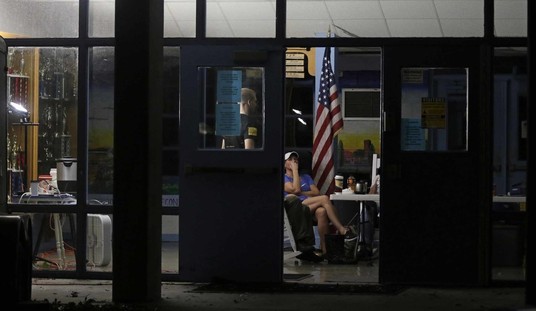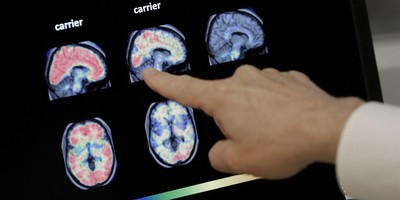The morning after election night, when it became clear that Donald Trump would become the next President of the United States, Paul Krugman predicted a global economic recession "with no end in sight." Initially he seemed to be right when the stock futures market indicated a sharp decline prior to the start of the trading day on November 9th. But when the stock market opened, major U.S. stock market indices such as the Dow Jones Industrial Average and the S&P 500 didn't fall off the cliff. On the contrary, U.S. stock markets rallied with impressive gains. What gives?
It was true that leading up to Election Day, both domestic and international investors showed that they preferred Hillary Clinton to be the next U.S. president because investors hate uncertainty. Despite all Hillary's personal shortcomings and policy flaws, she represented a known quantity to investors. On the other hand, a Trump presidency definitely brings a greater deal of uncertainty, which will likely increase stock market volatility. But increasing market volatility doesn't necessarily represent a recession.
Once the initial shock of Trump's winning passed, investors who took a close examination of Trump's economic plan could take some comfort that while it is lacking in great detail, Trump's plan has some good pro-growth policy ideas. The most significant one is his tax proposal. Our tax policies are broken and have hindered our nation's economic growth. On the corporate side, there's wide agreement that U.S. corporations' global competitiveness have suffered due to the fact that the U.S. has considerably higher corporate tax rates among industrialized nations. On the personal tax side, average Americans spend at least 13 hours to prepare their tax returns. Our tax codes are not only complex, but also have disincentivized productivity, savings & investments.
With the backing of a Republican controlled U.S. Congress, the Trump administration can implement the long overdue tax reform by lowering the corporate tax rate; slashing pass-through business income tax rates for small business owners; simplifying personal tax brackets from seven to three and eliminating the federal estate and gift tax, etc. Such tax reform would be a tremendous boost to our economy by encouraging entrepreneurship and investment; increasing productivity and leading to higher wages and living standards.
Recommended
Recognizing the good ideas within Trump's economic plan doesn't mean a wholesale acceptance of all aspects of the Trump's economic plan are good. Some of Trump's tax reform proposals are counter-productive, such as rewriting the tax code to "allow working parents to deduct from their income taxes child care expenses for up to four children and elderly dependents," and the expansion of the earned income tax credit. Such policies fall back into the trap of redistributing income rather than growing income. History has taught us that picking favors and giving handouts through tax codes usually do more harm than good and especially hurt the people who are most vulnerable.
Trump also promised close to a trillion dollars in new infrastructure spending. Considering how President Obama's "shovel ready" $800 billion plus infrastructure spending failed to turbo charge the economic recovery, I'm not too hopeful about this idea either. Given that Trump offered no proposals to reform entitlement programs such as Social Security, large government spending such as this will only worsen our national debt picture. Hopefully, some cooler heads in the upcoming Trump administration as well as the Republicans in the U.S. Congress will prevent such policies from implementation.
In addition to tax reform and fiscal stimulus, Trump also promised to repeal counter-productive regulations such as Obamacare and the Dodd-Frank financial reform act. While I don't think that a complete repeal of these laws is possible, the Republicans now have a mandate to at least rollback parts of these regulations and reduce the compliance burden upon American people and businesses.
Reforming tax codes and reducing regulatory burdens all have simulative effects on our economy. From a monetary policy standpoint, the U.S. Federal Reserve may not increase the interest rate in December as they originally planned due to the uncertainty brought by the Trump presidency. Even if the Fed does increase interest rates in December, the rate will still be low by historical standards. Additionally, internationally, central banks have adopted almost synchronizing simulative easy money policies in the last couple of years: the Bank of Japan, the European Central Bank (ECB) and several European nations have adopted negative interest rates and will likely continue such policy until 2020 or beyond. The Bank of England cut its rate to only 25 basis points after Brexit. China has unleashed a massive stimulus program, aiming to keep its economic growth rate at least at 6% for the sake of social stability so President Xi can focus on consolidating his power.
Taking all these factors into consideration, a global recession starting in January 2017 after Trump’s swearing-in is unlikely. Most investors understood this and that was why the U.S. stock market didn't plummet after the election despite Krugman's pessimistic prediction. But how fast the U.S. economy can grow will depend on how much the new President and his administration's good ideas will cancel out their bad ones.

























Join the conversation as a VIP Member